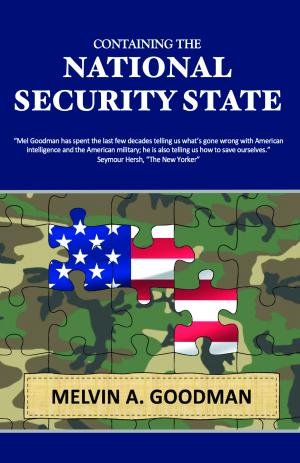State Department Gratuitously Invokes Monroe Doctrine Against Russia

The Biden administration and the mainstream media are trumpeting a Russian effort to create allies in Latin America, America’s backyard. This is part of the U.S. propaganda campaign against Moscow. Last week, the press spokesman for the Department of State (DoS), Ned Price, gratuitously invoked the Monroe Doctrine against Russian involvement in Latin America, warning that the United States would “respond swiftly and decisively.” In so doing, Price inadvertently and implicitly begged the question of how Russian President Vladimir Putin’s defense of its western border differs from U.S. hegemony in the Western Hemisphere.
First, some particulars. The mainstream media, particularly the New York Times and the Washington Post, are exaggerating Russian diplomatic efforts in South America, describing normal diplomatic activity as a frenzied campaign to increase influence in Washington’s backyard. In the only evidence theTimes could produce, the article said that Putin “spoke” to Nicaraguan President Daniel Ortega for the first time since 2014; “called” the leaders of Cuba and Venezuela; “hosted” the president of Argentina; and “scheduled” a meeting with Brazil’s President Jair Bolsonaro. The Times concluded that these contacts were proof of Putin’s efforts to “build on ties that go back to the Cold War and shed light on the global nature of his ambitions.” Total boilerplate!!
A day later, the Post—playing catch-up—castigated Bolsonaro for bringing “Latin America’s largest and most powerful country into an embrace with one of the United States’ greatest foreign adversaries.” Like the Times, the Post maligned Putin’s “gambit to forge stronger relationships in Latin America, far from Russia’s traditional sphere of influence.” The Post concluded that Putin was successfully “outflanking the West’s attempts to isolate his country.” U.S. officials have contributed to this propaganda campaign with charges of Russian online influence operations to sow unrest in South America. Again, no evidence was produced.
In distorting normal diplomatic activity that presented no threat to the United States, the mainstream media was carrying propaganda water for the Biden administration. But there was one newsworthy aspect of this activity as a result of the Times’ efforts to create out of whole cloth the possibility of Putin taking the opportunity to provide “military support” or deploy “weapons in the region.” The Times falsely linked Putin’s personal diplomacy to the possibility of putting “military infrastructure” in Venezuela or Cuba. No evidence of such activity was offered; there is none and Latin American analysts pooh-poohed the notion of Russia deploying weapons across the region.
Nevertheless, this conjecture came up in a DoS press conference and Price, instead of dodging the issue, threatened a swift and decisive U.S. response. In so doing, he opened the door to a discussion of whether Putin had legitimate reasons for wanted to control the deployment of modern Western weaponry, including a sophisticated air defense system in Poland and Romania, where there are U.S. bases.
Secretary of State Antony Blinken begged some questions of his own on February 18, when he spoke to the United Nations about the evidence of Russian invasion plans. Senior European officials have expressed frustration with Blinken’s remarks because he didn’t share specific intelligence, let alone sources and methods. After all, it was nearly 20 years ago—February 2003—when another secretary of state, Colin Powell, made a case for war against Iraq by offering two dozen false allegations regarding Iraq’s weapons of mass destruction. Powell purposely placed two leading U.S. intelligence officials behind him—Director of National Intelligence John Negroponte and CIA director George Tenet, who played major roles in the politicization of intelligence regarding Iraq. Presumably Blinken and CIA director William Burns, the former deputy secretary of state, remember the setback to U.S. credibility from the politicization of intelligence and the deceitful speech from a once respected American official.
I’ve never been sure about the lessons of history, but since we only have the history of the past to go on, it may be a good time to reprise U.S. historical responses to foreign intervention in the Western Hemisphere. The Cuban missile crisis is well known to most. Less well known is the German campaign in 1916-1917 to entice the Mexican government into a war with the United States. German Foreign Secretary Alfred Zimmermann sent his telegram to Mexico with the assistance of the American embassy in Berlin because of Britain’s control of cable traffic in Europe. The “Zimmermann telegram” became a major element In President Woodrow Wilson’s address to a special session of Congress in April 1917 to demand a declaration of war.
Before we mindlessly expanded NATO twenty-five years ago, it would have been helpful if the Clinton administration had remembered the history of the Monroe Doctrine as well as the history of Russian and Soviet efforts to safeguard their sensitive borders in the European theatre and Central Asia. Ironically, the Cold War began to recede in the early 1980s when the United States deployed Pershing-II and cruise missiles in Europe, but the Soviets responded with diplomacy rather than deployments of their own. The short time-to-target Pershing II presented a serious vulnerability problem for Soviet strategic forces and its early warning systems.
The United States (and the world) were lucky that a Soviet leadership—not only Mikhail Gorbachev but Yuri Andropov as well—realized the need to end the missile race in Europe, and accept an arms control treaty that eliminated intermediate-range missiles in the European theatre. The Kremlin could have added to their own SS-20 force of intermediate-range missiles, but they chose not to. The INF Treaty to eliminate intermediate-range missiles led to the resignations of two important Cold Warriors, Secretary of Defense Caspar Weinberger and Assistant Secretary of Defense Richard Perle.
Conversely, the deployment of Western weaponry in East Europe has created the conditions for a renewed Cold War between the United States and Russia. Putin has responsibility for encircling a defenseless Ukraine with unthinkable force, but the United States is responsible for repudiating an understanding in 1990 to resist deploying military force in East Europe and expanding a NATO organization with former members of the Warsaw Pact as well as former Soviet republics. We believe that Putin is seeking to undo the European security order with his policy of military coercion. The Russians believe that we destroyed the European security order with the expansion of NATO, which threatens to place the fifth NATO state on Russia’s border.
If war ensues, there will be a great deal of blame to assign to both sides. Like World War I, no one really wants war in Europe, but no statesman has emerged to invoke diplomacy to maintain the peace.
Originally posting on CounterPunch
Recent News and Latest Book
Meet the Newest Apologist for Israel: Rear Admiral John Kirby
Tuesday’s press conference highlighted the worst of the administration’s predictable defenses and apologies for Israel’s illegal and immoral military campaign against Palestinian civilians. Once again, the worst of Kirby’s remarks were not referenced in the Washington Post and received an anodyne one-sentence summary in the New York Times. I believe it is important to understand the meaning and implications of Kirby’s callous and callow remarks.
Washington Post Believes U.S. & Israel “Can Get Back on the Same Page”
President Biden seems to believe that the recent U.S. abstention on the cease-fire resolution at the United Nations Security Council and the feckless warnings about avoiding a humanitarian nightmare in southern Gaza allow his administration to pose as an “honest broker” between Israelis and Palestinians. The United States has never been a genuine “honest broker.”


